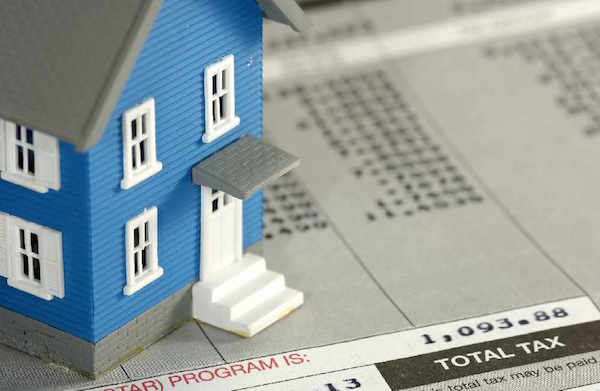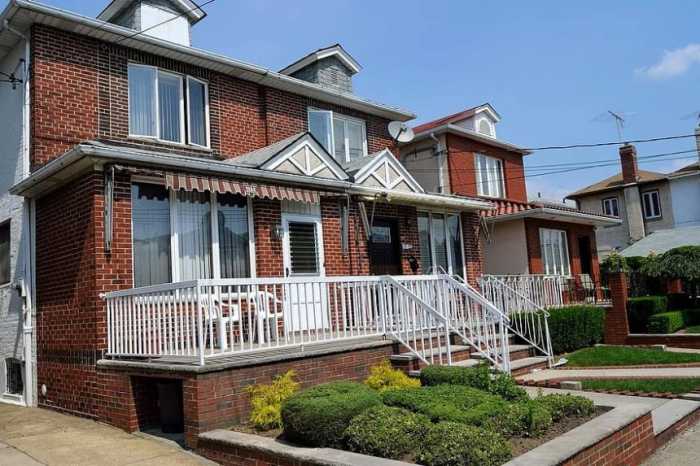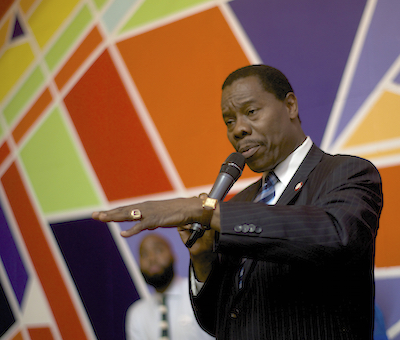Assemblywoman Nicole Malliotakis (R-Bay Ridge, Staten Island) today announced a proposal that she plans to introduce as a bill in the State Assembly which will amend many of the inequities currently plaguing New York City’s property tax system.
This announcement comes just a couple of days before Mayor de Blasio’s property tax commission makes the rounds through all the boroughs on a listening tour.

“Property taxes are easily one of the top issues affecting our community and other pockets of New York City and a leading reason why our city has become so unaffordable. As the system currently exists, low- and middle-income New Yorkers are subsidizing the property taxes of those living in the highest valued properties in our city’s most affluent neighborhoods,” said Malliotakis.
Part A of the Malliotakis’ bill will ensure that all Class 1 properties are assessed at full market value by removing the amount by which property assessments can increase so that the trendiest neighborhoods are not safeguarded from paying the same property tax rate as the rest of the city.
Under the current system, Staten Island and portions of the Bronx pay the city’s highest effective tax rates of 1.02%, 1.03% and 1.05%, followed by the low to middle income parts of Queens and Brooklyn.
For example, in Queens the neighborhoods of Bayside and Douglaston pay an effective tax rate of 0.94% and Breezy Point, the Rockaways, Hollis and Jamaica pay 0.93%. In Brooklyn, the neighborhoods of Bay Ridge, Dyker Heights, Canarsie and Brownsville are among those paying 0.73%. Meanwhile, more affluent areas such as de Blasio’s Park Slope and parts of Manhattan pay 0.32% and 0.35% respectively. Malliotakis’ bill would fix the inequality so everyone is paying roughly the same effective tax rate by assessing property at the home’s full market value.
Part B of Malliotakis’ proposal would create property tax cuts for seniors who are 65 and older whose household income does not exceed $75,000 and have lived in their residence for at least 20 years. This is primarily a protection for senior citizens living in the more expensive neighborhoods in the city who have seen their property values increase greatly during the 20+ years. In this case property taxes would be capped based on a designated percentage of the individual’s income to prevent senior citizens from being forced to sell due to inability to pay their annual property tax bill.
Part C makes New York City subject to a 2% property tax cap. Currently, New York City is one of the few municipalities in the State of New York that does not have a cap on the property tax levy. As a result, we have seen the Mayor and City Council increase the property tax levy by a whopping 44% since 2013. This provision could be done by city government without intervention from the state.
During her 2017 bid for mayor, Malliotakis made property tax inequities a major focal point of her campaign, pointing out that she paid an estimated $2,000 more in property taxes than Mayor de Blasio despite the fact that her Staten Island home was valued at roughly a third of the value of his Park Slope mansion.
In fact, the total market value of properties in the city council districts in which Malliotakis and de Blasio reside are roughly the same ($24 billion), yet the amount of property tax the city collected from the homeowners in these districts is very different.
Homeowners on Staten Island’s South Shore paid roughly three times the amount ($226.7 million) than those in Park Slope ($81.4 million). This is because under the current system, while the total market values of the neighborhoods’ homes are the same, the assessed values are very different at $438 million and $1.3 billion, respectively.
“It sends the wrong message when the mayor of our city lives in a home valued at $1.7 million and only pays $3,600 in property tax while others are paying twice that for homes valued half as much. This is a real ‘Tale of Two Cities’ and one that must be rectified so it is fair, equitable and affordable for all.” Malliotakis said.
The Property Tax Commission Hearing Schedule includes:
Wednesday, October 3, 2018
Queens
York College – Milton G. Bassin Performing Arts Center
94-45 Guy R. Brewer Boulevard
Jamaica, NY 11434
Monday, October 15, 2018
Brooklyn
Location TBD









